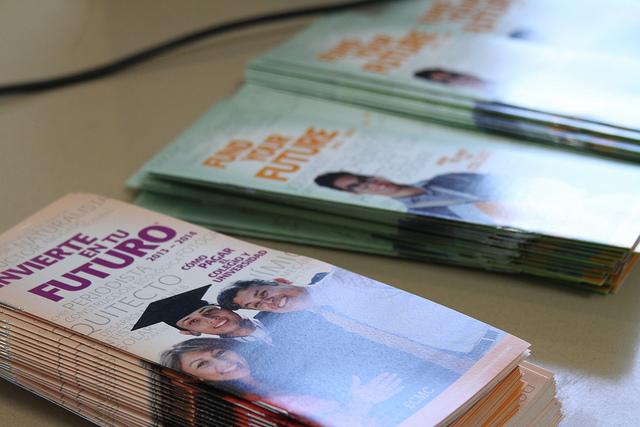President Trump’s campaign promises regarding deportations of undocumented immigrants have created uncertainty among DACA students.
In 2012, President Obama passed the Deferred Action for Childhood Arrivals (DACA) that allowed undocumented students to stay in the U.S. for two years to study or work and to get a driver’s license.
If Trump decides to undo the executive action that created DACA, the program could be canceled or it could not allow students to renew their benefits when they expire after two years, according to DACA student, Jesus Suarez.
Suarez, a finance major, was 17-years-old when he received DACA.
“After graduation, I’m thinking about going into the corporate world, work at a nonprofit, or work for teachers of America,” Suarez said.
According to Suarez, if DACA is revoked, many others will also not be allowed to work legally anymore.
“The worst case scenario for me would be having the policy change and then not being able to get the job that I want because of my lack of documentation,” Suarez said. “Personally, I’m not too afraid. I always think about the students that came before me that didn’t have DACA or financial aid and were able to succeed. Those who want to prevail will prevail regardless of the barriers in front of them.”
President Harrison and CSUN’s Chancellor Timothy White sent out an email last week urging all students that are approached by someone who asks about their legal status to immediately report it to the campus police.
“I’ve read the email sent out by the Chancellor White that said that if you are stopped by immigration to contact the campus police,” Suarez said. “I think it’s very helpful for students to know that their school is on their side. The fact that your school is supporting you regardless of your legal status brings a sense of relief.”
Dario Fernandez, DREAM Project coordinator, said the recent drop in the California Dream Act applications is tied to fear of deportation under the new president.
“Statewide there has been a significant drop in the California Dream Act applications by 64 percent because students are afraid that they can put themselves at risk,” Fernandez said. “What a lot of people don’t know is that the information cannot be shared with any agencies.”
Fernandez said that losing DACA would not eliminate the opportunity to attend college.
“One misunderstanding that happens is that if DACA is eliminated then they will not be able to attend a university,” Fernandez said. “That simply is not true because the California Dream act and AB 540 that makes college more accessible are state laws and they will remain unchanged even if something happens to DACA.”
Lack of clarity on policy changes leaves the fate of many undocumented students uncertain.
“There is power in knowing the information and obtaining the resources and legal services that help them understand where they stand in relation to immigration policies,” Fernandez said. “The Dream Center helps students get access on how they can protect themselves during these times.”
A DACA student who wishes to remain anonymous is an economics major who interns at CSUN’s Dream Center and is originally from Oaxaca, Mex.
“We haven’t seen everything unfold yet so it’s hard to know how to feel,” he said.
He said he is not making long-term plans because of the possible changes that may come.
“Whatever happens due to the new administration will change what happens to me,” he said. “I can have plans but they might be put on hold because I might not have a worker’s permit and I might not even be here legally.”
He explained not knowing if DACA will be revoked causes uncertainty and fear.
“I’m afraid of going through five years of education and then not being able to get a job or practice what I’ve learned,” he said. “I could have been using that time for something else.”


















